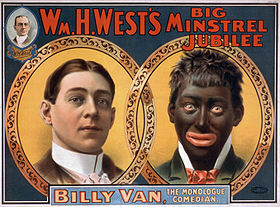By Melissa Nefdt Recently there has been a story in the news of what initially appeared to be yet another case of blackface at a traditionally white institution. “Blackface at Stellenbosch University”, headlines said, above a picture of two young women clearly sporting paint all over their faces, necks and arms, smiling broadly into the […]
blackface
#ZumaMustFall: Whose hashtag is it anyway?
In the build-up to the #ZumaMustFall marches on December 16 (Reconciliation Day), a number of critical voices came to the fore. I wondered whether some #RhodesMustFall and #FeesMustFall activists were perhaps not proprietary in their response to the new hashtag and the planned marches, which appeared to be driven largely by white, middle and upper-class […]
Blackface, Khaya Dlanga and why we can’t disentangle sexism from racism
Speaking recently at Johannesburg Workshop in Theory and Criticism in Cape Town, iconic political activist and scholar Angela Davis in her talk “Anti-Racism: Transnational Solidarities” remarked that “black unity” is often a term that never fits the lived reality of many black people. She made an example of how in the “black power” movements in […]
The very ordinary face of racism
Looking at the picture of the two young students from Tuks, one of the things I would like to know is: Does that paint not itch? Sweat and a thick coat of paint, they surely are strange bedfellows. Nevertheless, it seems that even the green Sunlight block of soap will not wash this paint away; […]
Black mouths, white voices
“You can teach a dog how to walk on its hind legs and put a diamond collar around its neck, but it’s still a dog.” No such saying exists in Zulu, or any other Bantu language for that matter. And yet the writers of Intersexions expected us to believe that. This quote featured on the […]
White writers writing black characters – a form of literary blackface?
White South African writers who create black characters are often challenged about the authenticity of their writing. If their main protagonist is black, this challenge intensifies, and if they write in the first person, it intensifies further. There is something particularly intimate about first-person narrative. It gets under the skin of the character in a […]





